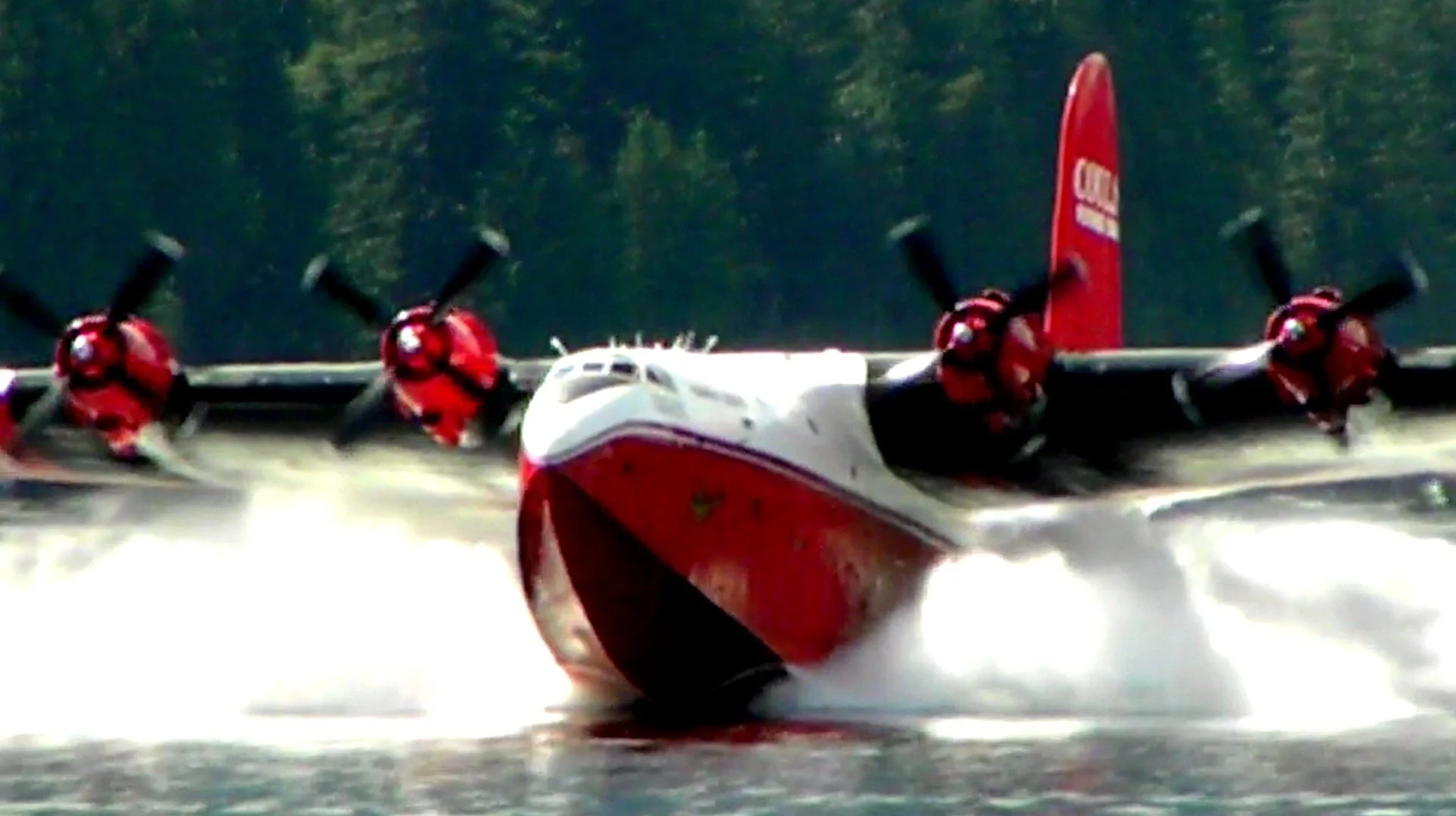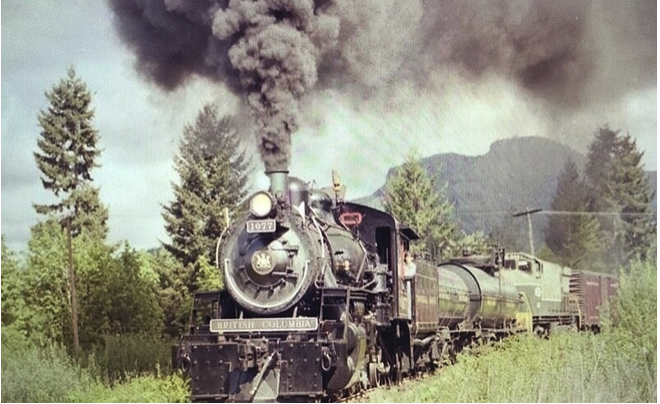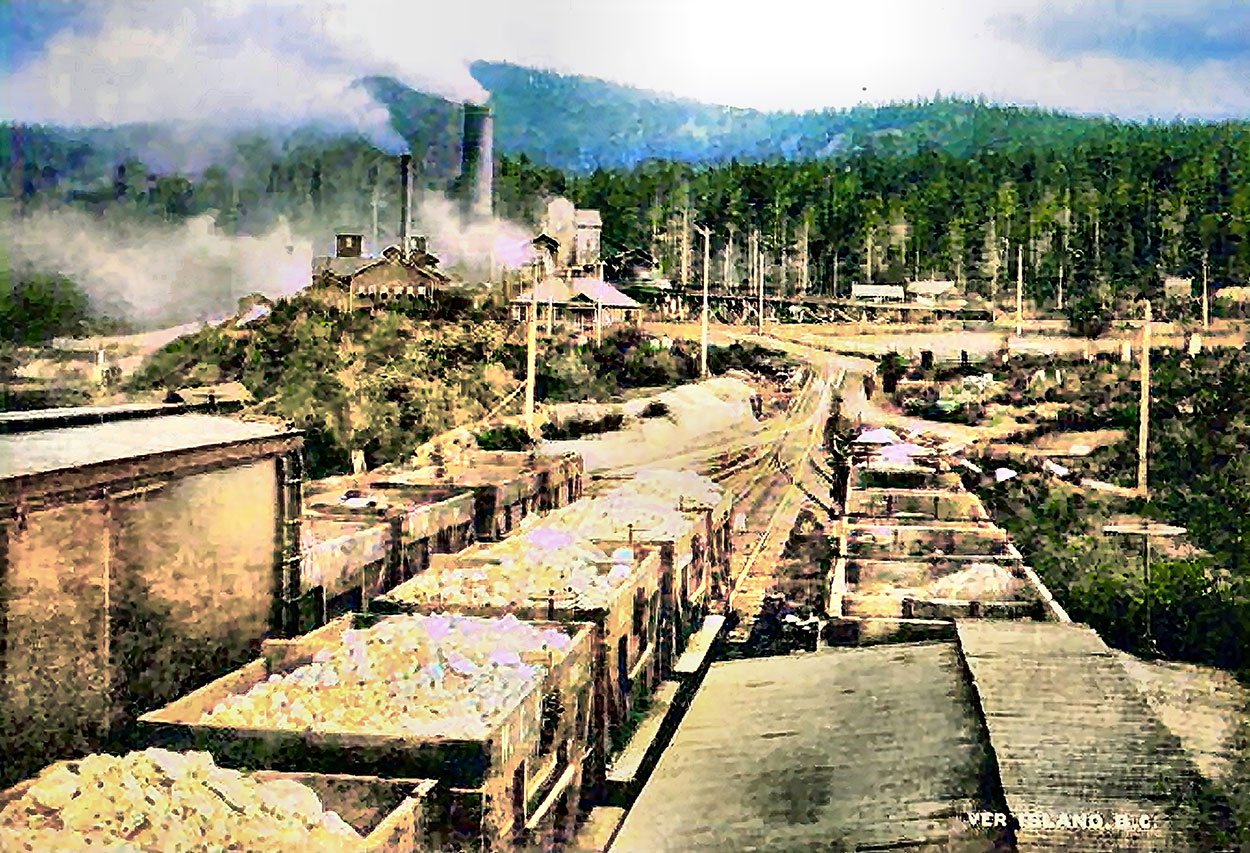Editorially speaking…
Although it sometimes feels like it, I’m not the only author who celebrates British Columbia history. Obviously, as Chronicles readers are sure to be aware, there are others beating the drum of history.
However, a full-page story in this week’s Cowichan Valley Citizen is a happy reminder that, right here in my own backyard, a dedicated band of volunteers is hard at work promoting Vancouver Island’s colourful past.
And what a program the Seeds & Salt Theatre Co. is presenting. From pioneer whaling to remittance men, Canada’s second worst coal mine explosion, to a local link with Prohibition gangster Al Capone and a heartbreaking suicide. All stories true, proving yet again, that fact is stranger than fiction.
And some people say history is dull?
Prohibition era gangster Al Capone in Mill Bay, B.C.? You’ll have to attend a performance of Messages in the Dust for this story! —Wikipedia
What particularly caught my attention in the Citizen article were several quotes from two of the principals involved in the production of Messages in the Dust. For Maureen Alexander, president of the Mill Bay/Malahat Historical Society, this is her second time round with a theatre company re-enacting real heroes and events of our sometimes not-so-distant but fascinating past.
“I've always been intrigued by true stories.” she she told Citizen reporter Chadd Cawson.
“There are amazing stories of Vancouver Island that people have absolutely no idea ever happened. Learning from the last shows that we did the reactions of the audience were absolutely amazing—they would be crying, laughing, while some persisted that the events we were presenting never happened on Vancouver Island, the Japanese Internment in particular.
“It was just an amazing the way that they would go away with such an appreciation for not just the past that had happened, but more so for the people that had never heard of who actually lived them.
“Human nature really hasn't changed that much. The outcomes of events may be different but with human nature things are still tragedy, things are still funny, and I just thought some of these stories are just incredible...”
Scriptwriter Will Johnson: “I've always been fascinated by Canadian history, and in particular I've always been drawn to the Prohibition era. When I was commissioned by [Mill Bay/Malahat Historical] Society president Maureen Alexander to write this show, I was instantly drawn in by the seedier side of things. These were stories about gangsters, scoundrels and crooks—not the idolized colonial pioneers in white wigs that many people imagine."
There is indeed something seedy about the sad story of schoolteacher Mabel Johnson whose tragic suicide in the 1920s (see the promo for next week’s Chronicle) sparked a re-invention of B.C.’s public schools system.
We need to encourage far more proactive approaches to our history-keeping and the MBMHS’s theatre productions are as good as they come.
History dull? Yeah, right.
* * * * *
Further to Vancouver Island heritage, as reported in these pages some weeks ago, one of the last of two airworthy Martin Mars water bombers is about to make its last flight, this one from its home base on Sproat Lake to the BC Aviation Museum in Sidney.
For a time one could buy tickets to board the plane or to water-taxi around it and the lake but the event is sold out.
The Martin Mars taxiing on Sproat Lake. —Courtesy Andrew Waldegrave
At some point in the near future, TBA, the Martin Mars will make her final flight south. It’s to be well advertised and I for one will move heaven and earth to see her in flight for the last time.
* * * * *
But enough, with the exception of the Nigel Robertson’s great colourization of a postcard of the Crofton smelter, of Vancouver Island this week. These are the British Columbia Chronicles, after all.
There was a time when commercial whaling was a big business along B.C.’s Pacific shores. But declining populations led to a moratorium other than by Japanese who persisted for a time in continuing to hunt “for scientific research”. (Then they ate them.)
Happily, most whale populations have rebounded despite the high incidence of the poor creatures becoming entangled in abandoned fishing gear or run down by ships. In the case of the Orca, it appears to be the matter of their not being able to consume sufficient sockeye salmon, their dish of choice.
But there’s another dark card in the game.
For the second time in 25 years the Makah Tribe of Washington State want to hunt a whale, an exemption of the federal Marine Mammal Protection Act granted them in the long ago by the U.S. government.
In Canada, Truth and Reconciliation has forever changed our understanding and appreciation of our Indigenous peoples and the legacies of colonialism. But, the Makah brutally killing a whale (there’s no humane way to do this; last time, they had to finish it off with a .50 calibre machine gun) doesn’t work for me.
Cruelty to an animal is just that—cruelty—and to hell with cultural expression. You may quote me.
* * * * *
--Courtesy Shannon Panko
On a happier note, Fort Steele’s historic No. 1077 locomotive, which has been laid up this summer, may be slated for a return to service as a popular tourist attraction.
I’ll report in greater detail in next week’s Chronicles.
* * * * *
This week’s ‘colourization’ by Nigel Robertson shows Crofton as it would have appeared almost 100 years ago. (Last week, this caption went amiss.)
So the smokestack isn’t from a pulp mill but from the smelter that was built to process ore from Henry Croft’s rich copper mine atop nearby Mount Sicker. The Lenora didn’t last long, but ores from the famous Britannia mine in Howe Sound extended the Crofton smelter’s life for several years.
A recreational vehicle campground occupies the site today. Years ago, Crofton Harbour had to be dredged to clear out some of the slag that was dumped into its waters. You can still find beautiful, rainbow-hued chunks of slag at low tide.




